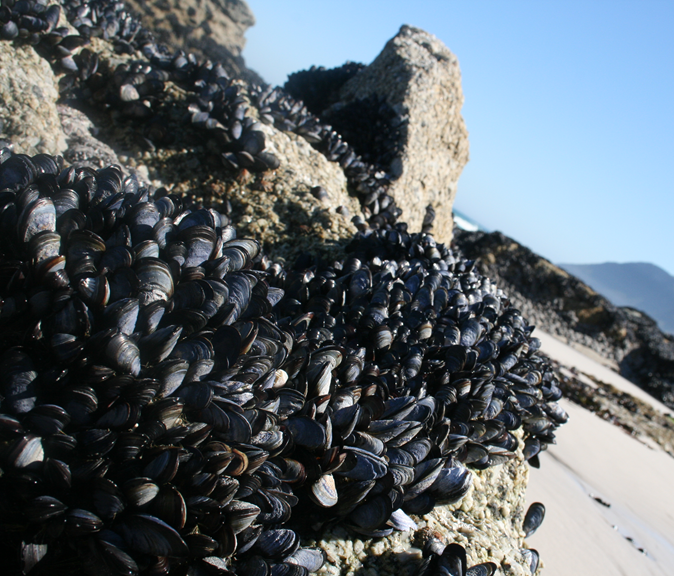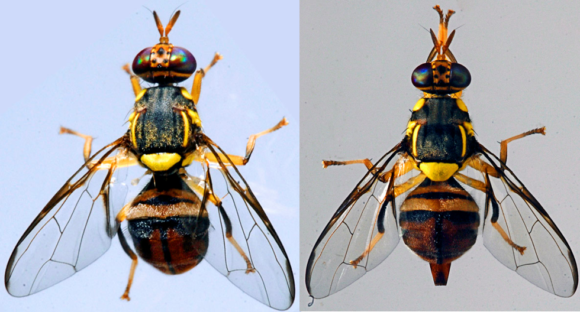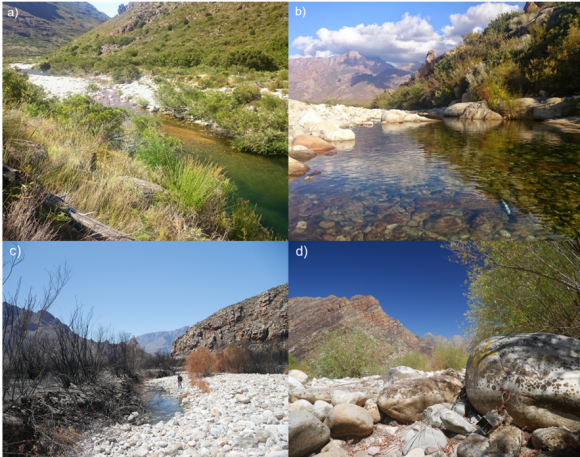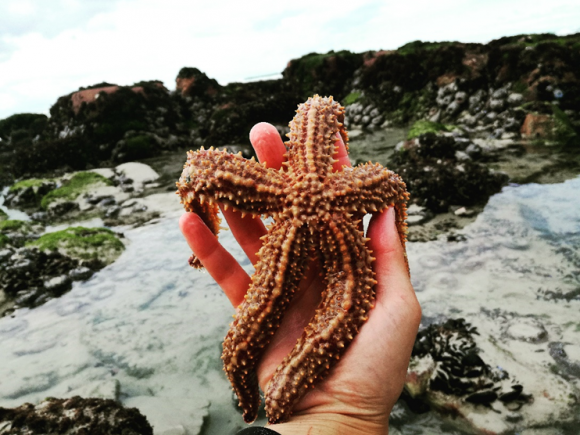When we consider how invasive alien species affect native species, we mainly think of alien predators preying on native species. However, there are examples of native species that prey on alien species – which leads ecologists to the question “what are the effects of alien prey on predatory-prey relationships?”
This question was investigated in a study by C·I·B postdoctoral Fellow, Dr Mhairi Alexander. The study, which was published in the Journal of Experimental Marine Biology and Ecology, focused on the invasion by two alien mussels, the Mediterranean mussel (Mytilus galloprovincialis) and the Pacific mussel (Semimytilus algosus), and how they influence the feeding choices of the native predatory whelk, Trochia cingulate.

Surveys found that in comparison to a previous study in 1983, the type of mussels found on the shore had changed over the past 30 years. The native species the Black mussel (Choromytilus meridionalis) disappeared with the arrival of the alien mussels. The native whelks, that previously preferred to eat native mussels, had changed their choice of prey and now prefer to eat the alien mussels.
“Although the whelks didn’t seem to base their foraging on chemical cues from the mussels, they appeared to make their choice based on handling experiences.” says Mhairi Alexander. She explains “It was interesting to see that the whelks’ experience with one invasive mussel facilitated their feeding on a second, morphologically similar invasive mussel.”
Read the paper
For more information, contact Mhairi Alexander at malexander@sun.ac.za



